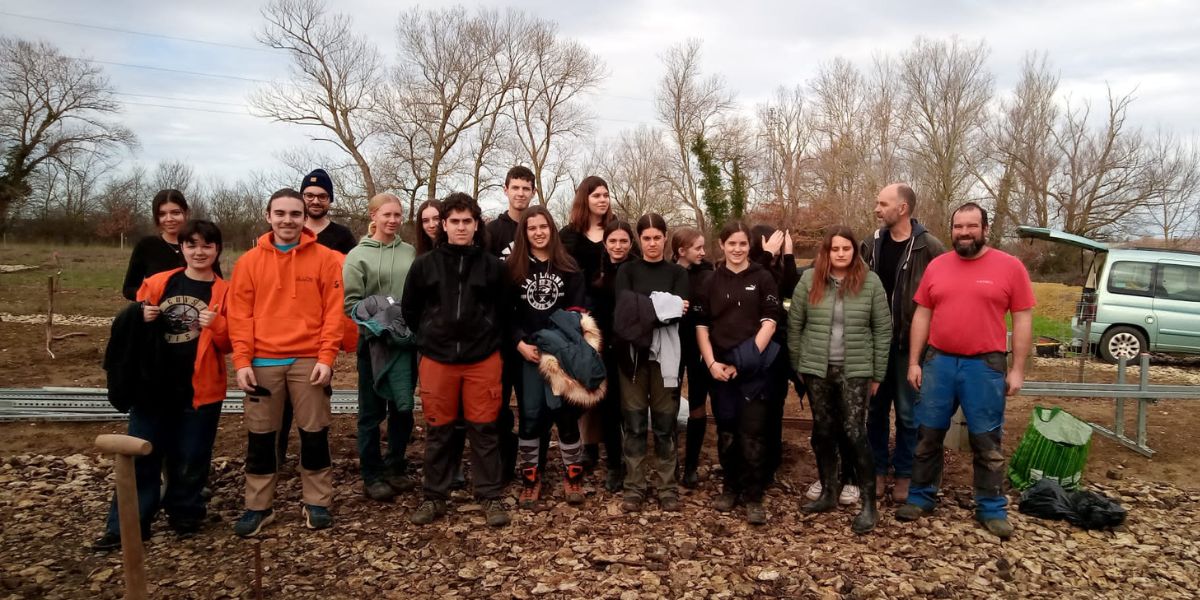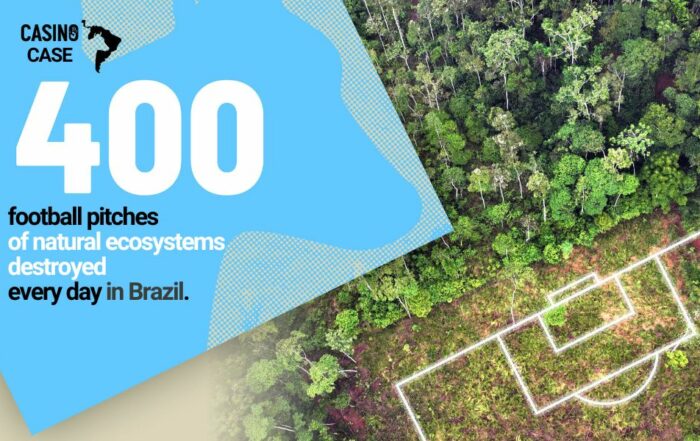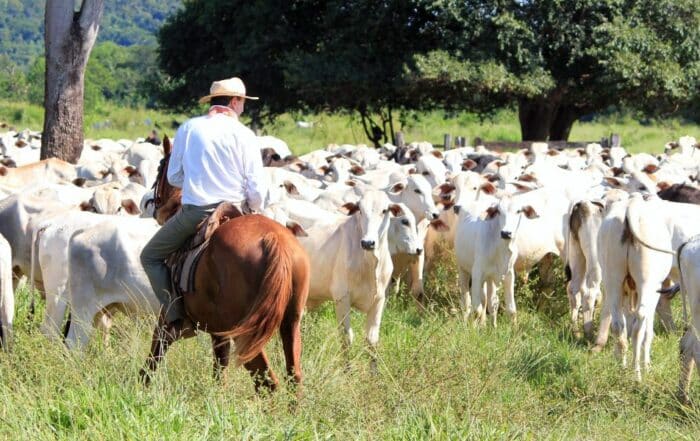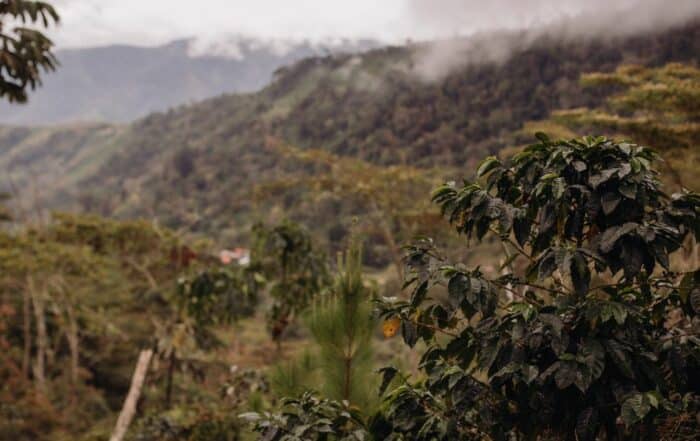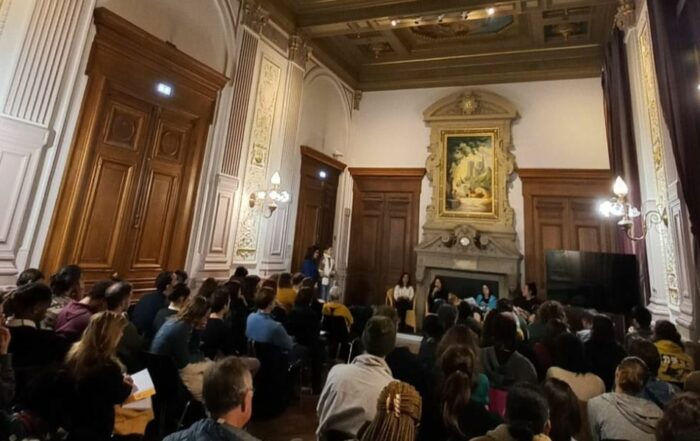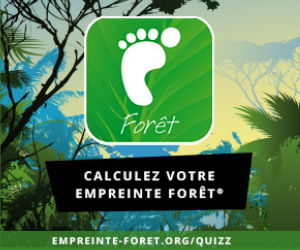A beekeeper based in Revel (31), Éric Thuriès is developing an api-forestry project on his plot of land, combining fruit trees, honey-bearing country trees and bees in a plot with a dual productive and educational purpose. A native of Revel, he is keen to get local schools and businesses involved in replanting trees in his area.
Who are you?
First of all, I’d like to tell you a bit about myself and who I am.
My name is Eric Thuriès, I’m the grandson of a farmer and I trained in fish farming at LEGTA Louis Pasteur in La Canourgue in Lozère.
I’ve worked in various fields: fish farming, factories, supermarkets, local authorities, etc. But I’ve always wanted to get back to nature. A deep conviction: to get back to basics, to what’s essential. Despite the advice of my ancestors, who told me to “do something other than work the land”, that it was too much of a job. that it was too hard a job with little recognition. It’s true that it’s difficult, but nourished by local values and sensitive to nature, I took flight. And thanks to Envol Vert, other like-minded people and the support of those close to me, I no longer feel alone, and that gives me the strength to continue this adventure…
How did you hear about Envol Vert?
I found out about Envol Vert from an article in the Dépêche du Tarn on social networks explaining the planting and training activities for project owners and farmers in the Tarn.
My partner and I were interested in Envol Vert’s activities and were looking for training to improve our skills, so we went along to an information meeting at Les Cabrols on 8 September 2022.
The meeting was presented by Axel Boyon, and that’s where it all started 😉🌳🐝
Has working with Envol Vert benefited your work?
Yes, completely, because the training (10 days) enabled me to mature my project, to classify and prioritise my objectives, to get to know the institutions that would be beneficial to my setting up, and to create an extraordinary network of like-minded farmers (you’re not alone!).
How do you make your plot more educational?
The way we made the plot educational was to think as much as possible about the interactions between flora and fauna, and to make it as practical and attractive as possible (there’s still work to be done).
From this winter onwards, we have hosted no fewer than 7 planting projects, with awareness-raising activities for young and old alike (schools, colleges, nutrition and health companies, etc.).
The aim is to keep the momentum going by planting trees on and around the plot (on the industrial estate) with local stakeholders, to beautify the area and enjoy the benefits of trees.
What are the environmental benefits of api-forestry compared with other agricultural practices?
Api-forestry is a combination of beekeeping and agroforestry that provides nectar and pollen in continuous bloom throughout the year, supporting the development of colonies.
With climate change and the scarcity of certain resources, trees are at the heart of everything we do to combat this.
I’ve been thinking about having staggered-flowering trees in my immediate environment. This will be good for my bees, but it’s not the only thing… The trees I’ve chosen have other benefits too.
The apiary has been designed to be multi-use: as well as producing honey in the traditional way, it has been designed to provide other uses (fruit, biomass, basketry, hiding places and shelter for wildlife, hosting and picking fruit, etc.).
What were the main challenges you faced in implementing api-forestry?
The challenge was to plant as much as possible to have a visible impact on the local community and, through the health of the environment, to raise awareness among people.
So we need to unite as many people as possible around a common goal, while explaining the benefits that this can bring for a more desirable future.
In the word ‘peasant’, there is ‘country’ (territory) and I want to get as many people as possible on board this territory.
What are your long-term aspirations for this project?
At a local level, I hope that this will bring visible benefits and a better way of living in harmony with nature, a meeting place and an example to be replicated in other places.
Nature doesn’t need us, but we need it to live.
Developing beekeeping in association with trees remains an essential educational tool. Each and every one of us must play a part in protecting or renaturalising our “territory”. Climate change is making itself felt more and more, with year-on-year temperature peaks endangering certain species and tree species. There are also repercussions for people’s health – pollution, heat islands, etc.
My objective is clear: to be that small cog in the wheel that feeds and rallies as many people as possible for a more natural, healthy horizon. And this is done by raising awareness and making people understand that all our actions have positive or negative impacts: the one is everything and the whole is one.
Bees and trees, that says it all!
A beekeeper based in Revel (31), Éric Thuriès is developing an api-forestry project on his plot of land, combining fruit trees, honey-bearing country trees and bees in a plot with a dual productive and educational purpose. A native of Revel, he is keen to get local schools and businesses involved in replanting trees in his area.
Who are you?
First of all, I’d like to tell you a bit about myself and who I am.
My name is Eric Thuriès, I’m the grandson of a farmer and I trained in fish farming at LEGTA Louis Pasteur in La Canourgue in Lozère.
I’ve worked in various fields: fish farming, factories, supermarkets, local authorities, etc. But I’ve always wanted to get back to nature. A deep conviction: to get back to basics, to what’s essential. Despite the advice of my ancestors, who told me to “do something other than work the land”, that it was too much of a job. that it was too hard a job with little recognition. It’s true that it’s difficult, but nourished by local values and sensitive to nature, I took flight. And thanks to Envol Vert, other like-minded people and the support of those close to me, I no longer feel alone, and that gives me the strength to continue this adventure…
How did you hear about Envol Vert?
I found out about Envol Vert from an article in the Dépêche du Tarn on social networks explaining the planting and training activities for project owners and farmers in the Tarn.
My partner and I were interested in Envol Vert’s activities and were looking for training to improve our skills, so we went along to an information meeting at Les Cabrols on 8 September 2022.
The meeting was presented by Axel Boyon, and that’s where it all started 😉🌳🐝
Has working with Envol Vert benefited your work?
Yes, completely, because the training (10 days) enabled me to mature my project, to classify and prioritise my objectives, to get to know the institutions that would be beneficial to my setting up, and to create an extraordinary network of like-minded farmers (you’re not alone!).
How do you make your plot more educational?
The way we made the plot educational was to think as much as possible about the interactions between flora and fauna, and to make it as practical and attractive as possible (there’s still work to be done).
From this winter onwards, we have hosted no fewer than 7 planting projects, with awareness-raising activities for young and old alike (schools, colleges, nutrition and health companies, etc.).
The aim is to keep the momentum going by planting trees on and around the plot (on the industrial estate) with local stakeholders, to beautify the area and enjoy the benefits of trees.
What are the environmental benefits of api-forestry compared with other agricultural practices?
Api-forestry is a combination of beekeeping and agroforestry that provides nectar and pollen in continuous bloom throughout the year, supporting the development of colonies.
With climate change and the scarcity of certain resources, trees are at the heart of everything we do to combat this.
I’ve been thinking about having staggered-flowering trees in my immediate environment. This will be good for my bees, but it’s not the only thing… The trees I’ve chosen have other benefits too.
The apiary has been designed to be multi-use: as well as producing honey in the traditional way, it has been designed to provide other uses (fruit, biomass, basketry, hiding places and shelter for wildlife, hosting and picking fruit, etc.).
What were the main challenges you faced in implementing api-forestry?
The challenge was to plant as much as possible to have a visible impact on the local community and, through the health of the environment, to raise awareness among people.
So we need to unite as many people as possible around a common goal, while explaining the benefits that this can bring for a more desirable future.
In the word ‘peasant’, there is ‘country’ (territory) and I want to get as many people as possible on board this territory.
What are your long-term aspirations for this project?
At a local level, I hope that this will bring visible benefits and a better way of living in harmony with nature, a meeting place and an example to be replicated in other places.
Nature doesn’t need us, but we need it to live.
Developing beekeeping in association with trees remains an essential educational tool. Each and every one of us must play a part in protecting or renaturalising our “territory”. Climate change is making itself felt more and more, with year-on-year temperature peaks endangering certain species and tree species. There are also repercussions for people’s health – pollution, heat islands, etc.
My objective is clear: to be that small cog in the wheel that feeds and rallies as many people as possible for a more natural, healthy horizon. And this is done by raising awareness and making people understand that all our actions have positive or negative impacts: the one is everything and the whole is one.
Bees and trees, that says it all!

